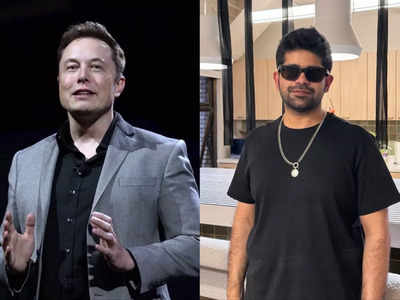Key Takeaways:
- Aravind Srinivas’s Frustration: The Indian-origin CEO of Perplexity AI expressed his discontent with the lengthy U.S. green card process, reigniting debates about immigration challenges for highly skilled workers.
- Elon Musk’s Response: Musk criticized the inefficiency of the U.S. immigration system, comparing the struggles of skilled professionals to the ease of illegal border crossings.
- Broader Impact: The exchange has sparked widespread debate about immigration reform, highlighting the challenges international talent faces despite contributing significantly to the U.S. economy.
- Immigration System Under Scrutiny: The situation reflects deeper systemic issues, particularly the outdated and inflexible visa and green card frameworks that tech professionals depend on.
The challenges of the U.S. immigration system were thrust into the spotlight when Aravind Srinivas, co-founder and CEO of Perplexity AI, shared his frustrations about the prolonged wait times for obtaining a green card. Srinivas, an accomplished technologist and entrepreneur, revealed that his application for permanent residency had been stuck in limbo for over three years despite his significant contributions to the tech industry.
The Viral Exchange
Aravind Srinivas took to social media to air his grievances, questioning the feasibility of continuing his pursuit of a U.S. green card. The post resonated with thousands, including tech mogul Elon Musk. Musk, known for his outspoken views on various issues, replied affirmatively to Srinivas’s question and went on to criticize the inefficiency of the U.S. immigration system.
Musk’s critique drew attention to the perceived disparity in how the system handles skilled professionals versus individuals entering the country illegally. “It’s ridiculous how hard it is for people who contribute so much to America’s economy to get legal residency,” Musk remarked. His statement was widely shared and sparked discussions about the need for systemic reform.
The Green Card Bottleneck
The U.S. green card process is notoriously slow and complex, especially for Indian nationals. The employment-based green card system operates under a quota system that caps the number of applicants from any single country. For Indian applicants, this has resulted in decades-long backlogs due to the sheer volume of applicants and the limitations imposed by the country-specific cap.
For someone like Srinivas, who graduated from prestigious institutions like IIT Madras and UC Berkeley and co-founded a successful AI company, the delays highlight a system that many believe fails to prioritize talent and merit. His experience is not unique; thousands of highly skilled workers face similar barriers, forcing many to reconsider their future in the U.S.
Why It Matters
The U.S. tech industry relies heavily on international talent, particularly from countries like India, to fill roles in engineering, AI, and other cutting-edge fields. Delays in green card processing not only create personal and professional uncertainty for these individuals but also risk undermining the U.S.’s competitive edge in the global tech landscape.
Musk’s comment has amplified these concerns, with many calling for reforms to streamline the immigration process for highly skilled workers. Advocates argue that the current system is outdated and fails to reflect the demands of a modern economy.
The Human Cost
Beyond economic implications, the prolonged wait times take a toll on individuals and families. Many applicants on work visas face restrictions that limit job mobility and delay long-term planning, such as purchasing homes or reuniting with family members. For those stuck in the system, the uncertainty can be both professionally stifling and emotionally draining.
A Call for Change
The viral exchange between Srinivas and Musk has reignited discussions about U.S. immigration reform. Critics of the current system emphasize the need for policies that prioritize skilled talent and address backlogs. Proposed solutions include:
- Removing or adjusting the country-specific caps on employment-based green cards.
- Introducing expedited pathways for individuals in high-demand fields, such as technology and healthcare.
- Increasing transparency and accountability within the immigration system to reduce bureaucratic delays.
Moving Forward
While discussions about reform are not new, the attention brought by prominent figures like Elon Musk adds momentum to the conversation. For individuals like Srinivas and the broader tech community, meaningful changes to the system could unlock opportunities and foster innovation, ensuring that the U.S. remains a global leader in technology and entrepreneurship.
The broader question remains: Will the U.S. government take steps to modernize its immigration policies, or will skilled professionals like Srinivas continue to face uncertainty, potentially looking to other nations that offer more streamlined paths to residency?
#










